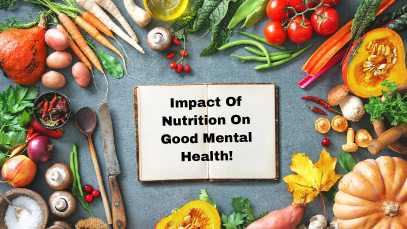Introduction
The link between nutrition and physical health is well-established, but the impact of nutrition on mental health is gaining increasing attention. Proper nutrition plays a crucial role in maintaining mental well-being, influencing mood, cognition, and overall psychological resilience.
The Brain-Gut Connection
The gut-brain axis is a complex communication network linking the central nervous system and the gastrointestinal tract. The gut microbiota, comprising trillions of microorganisms, significantly influences brain function and mental health. A balanced diet supports a healthy gut microbiome, which can positively impact mood and cognitive function.
Key Nutrients for Mental Health
- Omega-3 Fatty Acids: Found in fatty fish, flaxseeds, and walnuts, omega-3 fatty acids are essential for brain health. They have been shown to reduce symptoms of depression and anxiety.
- B Vitamins: Vitamins B6, B12, and folate are vital for brain health. They support neurotransmitter function and can help alleviate depressive symptoms.
- Antioxidants: Foods rich in antioxidants, such as berries, nuts, and green leafy vegetables, protect brain cells from oxidative stress and inflammation.
- Amino Acids: Tryptophan and tyrosine are precursors to neurotransmitters like serotonin and dopamine, which regulate mood and behavior. These amino acids are found in protein-rich foods.
The Role of Diet in Mental Health Disorders
- Depression: A diet rich in whole foods, lean proteins, and healthy fats can help reduce symptoms of depression. Conversely, diets high in processed foods and sugars are linked to increased depression risk.
- Anxiety: Nutrient-dense diets can reduce anxiety symptoms. Foods high in magnesium, zinc, and omega-3 fatty acids are particularly beneficial.
- ADHD: Some studies suggest that dietary interventions, such as reducing sugar intake and increasing omega-3 fatty acids, can help manage ADHD symptoms in children and adults.
Practical Dietary Recommendations
- Mediterranean Diet: Emphasizing fruits, vegetables, whole grains, lean proteins, and healthy fats, the Mediterranean diet is associated with lower rates of depression and cognitive decline.
- Plant-Based Diet: A diet rich in plant-based foods supports a healthy gut microbiome and can improve mood and cognitive function.
- Mindful Eating: Being mindful of food choices and eating habits can promote better mental health. Avoiding processed foods and sugars is crucial.
Conclusion
Nutrition is a powerful tool for maintaining and improving mental health. By prioritizing a balanced diet rich in essential nutrients, individuals can support their mental well-being and reduce the risk of mental health disorders. Future research should continue to explore the intricate connections between diet and mental health to develop more effective dietary interventions.
